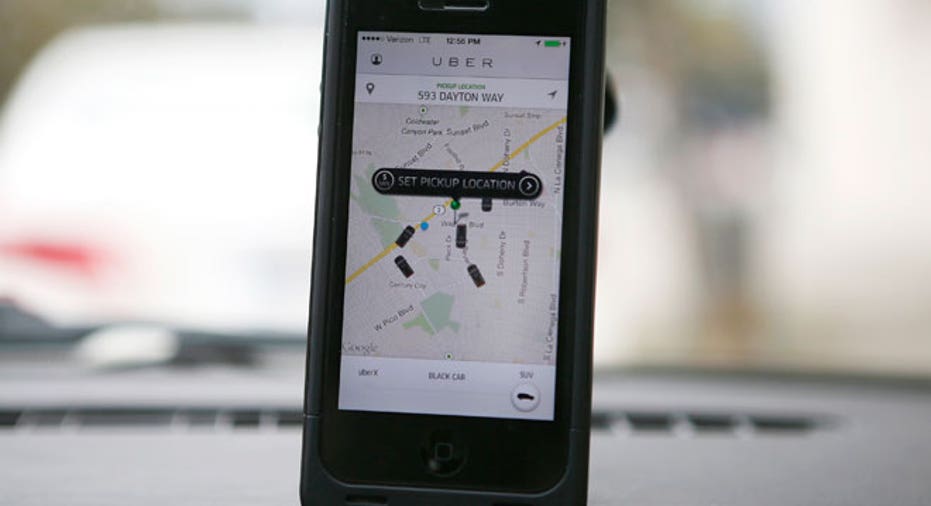Why Democrats Have the Gig Economy All Wrong

When politicians decide to champion a cause – even a good one – they usually end up getting it wrong and doing more harm than good.
Democratic Party leaders have coopted the gig economy as their next great crusade. They’ve drawn the battle lines and are taking a stand on behalf of Uber drivers, Airbnb renters and Etsy sellers against evil corporations and their shady, unregulated on-demand business model.
The problem, as they see it, is that greedy CEOs have figured out a way to squeeze even more out of workers and rake in more profits for themselves: by designating workers as independent contractors with no benefits, and offloading overhead expenses and FICA taxes onto them.
Their solution, of course, is more legislation, regulations, and payroll taxes to keep the big bad corporations from exploiting loopholes in labor laws. And of course, they also want more entitlements, safety nets and guaranteed benefits for the downtrodden gig worker bees.
Who could have seen that coming?
Here’s the thing. Without even realizing it, the politicians have managed to hit on something big. Something important. Something that’s a real and growing problem for the nation and the economy. But as usual, they’ve got everything backwards.
They think that corporations caused the problem, workers are the victims and government is the solution. In reality, government and globalization caused the problem, workers are making a choice and corporations found the only available solution.
As I see it Hillary Clinton, Bernie Sanders and Elizabeth Warren have no clue about this growing trend and why it’s important, since they have little, if any experience holding a real job, let alone creating one. And the entire situation is dysfunctional, as it always is when the federal government tries to stick its ever-growing nose into our free-market business.
Meanwhile, it’s a campaign issue and this is an election year, so let me explain what’s really going on here and why it matters to each and every one of you.
First of all, this is not about Uber, Lyft, Airbnb, Etsy or any other company whose business model depends on lots of workers that don’t actually work for them directly. And it’s not about income inequality either, at least not in the popular sense of the rich getting richer at the expense of the middle class.
This is about a long-term transition from full-time employees to contract workers across a wide range of industries and occupations in both private and public sectors. Companies and institutions alike are hiring more and more self-employed people as temporary workers and independent contractors.
Depending on which report you read, self-employed workers now make up between 16 or 17% of the U.S. labor force, up from 10% just a decade ago. To put that in perspective, that’s nearly 30 times the total number of gig workers at all on-demand companies combined.
As a result, the labor participation rate is at a multi-decade low while self-employment is at a multi-decade high. I see three factors driving that ongoing trend:
Legislation
Besides sweeping legislation like the Affordable Care Act (ACA), Dodd Frank and Sarbanes Oxley, corporations face an unprecedented and ever-growing onslaught of regulations, rules and taxes that impede growth and sap profits. The ACA, President Obama’s new overtime rules and state minimum wage increases also disincentive job growth in favor of contract labor.
Globalization
To remain competitive in the face of increasingly competitive global markets, corporations have been downsizing, outsourcing and becoming leaner for decades. The new normal of globalization has made it necessary for companies to use contract labor to modulate short-term business fluctuations. A benefit of that trend is that it results in fewer layoffs.
Entrepreneurship
The exploding entrepreneurial craze has empowered a new generation of workers to rule their own destinies and opt for the perceived benefits of self-employment: freedom and independence. Fueled by social media, blogs and mobility, that’s given rise to a growing number of solopreneur professions such as content marketing, Web design, app development, millennial consulting and professional coaching.
Why is this a problem?
First, it hurts productivity. While independent workers are about 17% of the workforce, they only contribute 7% of the nation’s GDP. Second, a lot of income is going unreported and untaxed due to a gap in IRS form 1099 reporting requirements. Third, you can infer from the data that those self-employed workers are, on average, not doing very well financially. And nearly a third of them are Millennials.
Meanwhile, the left’s solution of further legislating, regulating and taxing companies will just exacerbate the problem. That’s partly what got us in this mess in the first place. And creating more safety nets for independent workers will incentivize people to go that route. The result would be lower productivity and tax income for the nation and less prosperity for workers.
Of course, the real solution is to repeal legislation that disincentivizes job creation and revenue growth and educate people that self-employment is not all it’s cracked up to be. But then, that would be too logical.



















